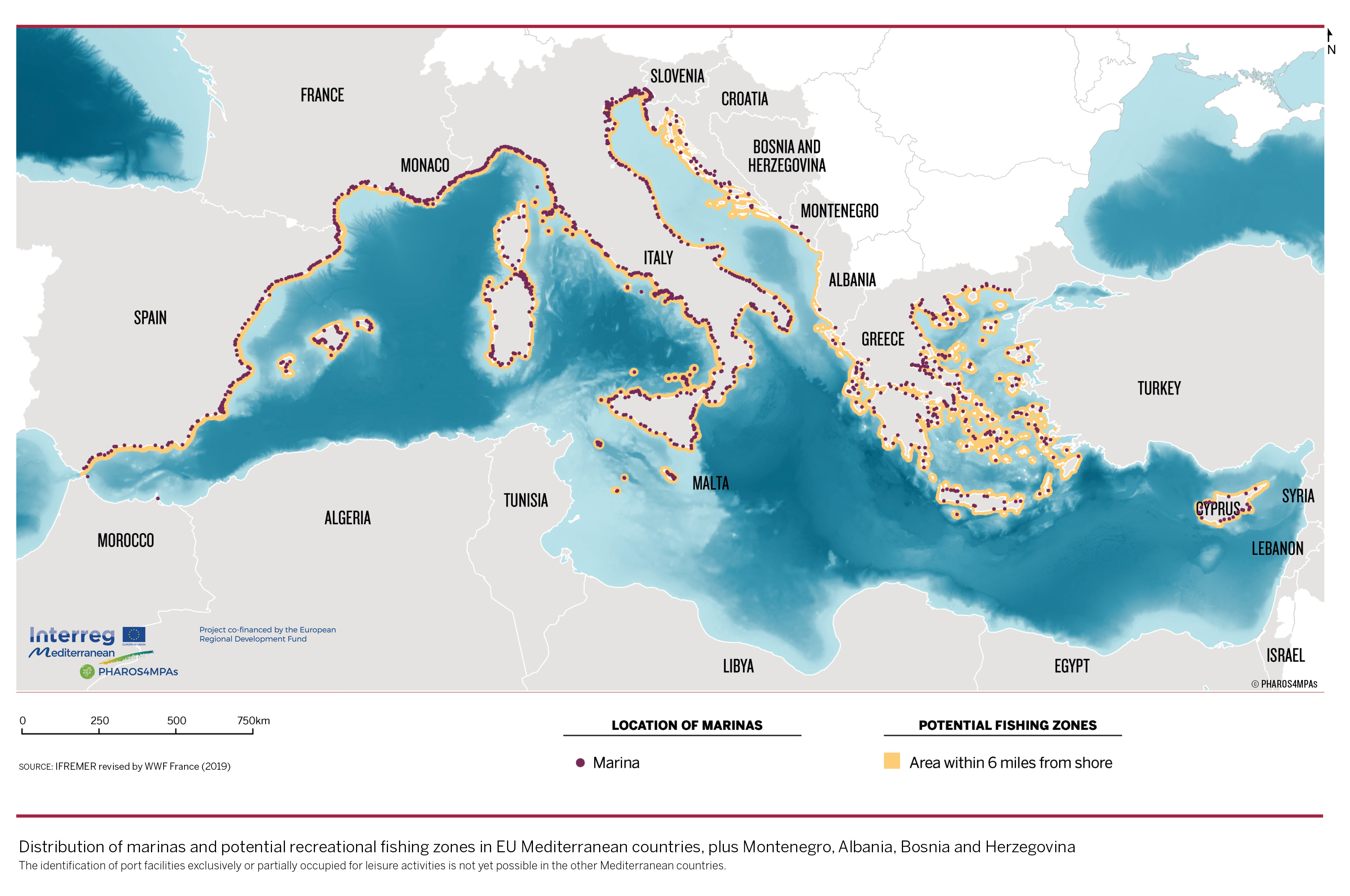The WWF is run at a local level by the following offices...
- WWF Global
- Adria
- Argentina
- Armenia
- AsiaPacific
- Australia
- Austria
- Azerbaijan
- Belgium
- Bhutan
- Bolivia
- Borneo
- Brazil
- Bulgaria
- Cambodia
- Cameroon
- Canada
- Caucasus
- Central African Republic
- Central America
- Chile
- China
- Colombia
- Croatia
- Democratic Republic of the Congo
- Denmark
- Ecuador
- European Policy Office
- Finland
© Maltese Robinson-Shutterstock
Recreational fishing
Recreational fishing could account for more than 10% of all fish production in the Mediterranean.
The absence of a common definition of recreational fisheries at the European level makes it more difficult to control and regulate recreational fishing activities, therefore the activity is poorly understood and regulated.
The overall number of recreational fishers is still unknown. But in some Mediterranean places, this number has quadrupled in 20 years. Such an increase in fishing effort is likely to lead to increased catch volumes, which will have an impact on fish stocks and the protection of vulnerable species.
Failing to include recreational catch estimates in stock assessments can undermine their accuracy and lead to incorrect advice on fisheries management. Not to mention that most RFs’ catches (up to 30-50%) are made up of vulnerable species.
Recreational fishing, in all its forms, is considered to be an extractive activity and, therefore, may not be compatible with ecosystem and wilderness qualities protection. It is strongly recommended that national licence systems should be developed so that the numbers of recreational fishers (among other parameters) can be better evaluated and the activity can be more strongly regulated. The map shows potential recreational fishing zones in EU Mediterranean countries, plus Montenegro, Albania and Bosnia Herzegovia
The map shows potential recreational fishing zones in EU Mediterranean countries, plus Montenegro, Albania and Bosnia Herzegovia
Failing to include recreational catch estimates in stock assessments can undermine their accuracy and lead to incorrect advice on fisheries management. Not to mention that most RFs’ catches (up to 30-50%) are made up of vulnerable species.
Recreational fishing, in all its forms, is considered to be an extractive activity and, therefore, may not be compatible with ecosystem and wilderness qualities protection. It is strongly recommended that national licence systems should be developed so that the numbers of recreational fishers (among other parameters) can be better evaluated and the activity can be more strongly regulated.
 The map shows potential recreational fishing zones in EU Mediterranean countries, plus Montenegro, Albania and Bosnia Herzegovia
The map shows potential recreational fishing zones in EU Mediterranean countries, plus Montenegro, Albania and Bosnia HerzegoviaRecreational fishing
A clear and agreed European definition of marine recreational fisheries is needed for regulation and enforcement purposes.